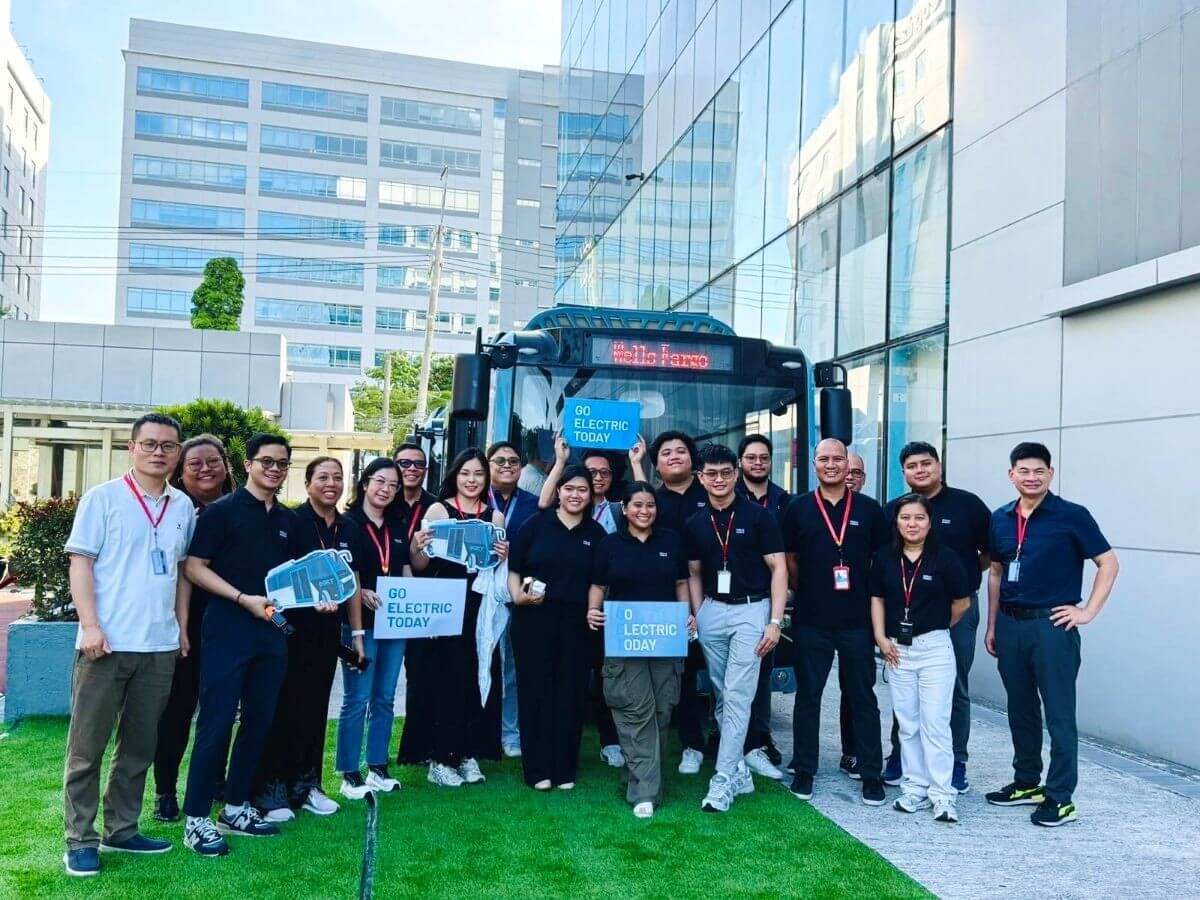

Why it matters
Metro Manila commuters face daily congestion and poor air quality — challenges that Wells Fargo’s initiative seeks to address.
According to the Center for Research on Energy and Clean Air (CREA), air pollution causes 66,000 premature deaths annually in the Philippines and costs over $1 billion in healthcare.
Driving the news
The electric buses are being integrated into Wells Fargo’s long-running shuttle program, a highly valued perk for employees.
The first 10 units launched in May, with another 10 arriving in August.
Routes are chosen for terminal availability and efficiency.
All units are accessible via the MoveInSync app for easy booking and tracking.
Features include:
Fast charging (20 percent to 90 percent in 45 minutes)
Air conditioning and accessibility features
GPS tracking
Seating for up to 25 passengers
What they’re saying
“Our free shuttle service has been one of our most appreciated employee programs,” said Mike Whyte, country head of Wells Fargo Philippines. “By introducing electric buses, we are enhancing our employees’ well-being while operating responsibly within our communities.”
Freddie Tinga, president of Global Electric Transport (GET), the chosen EV supplier, said: “With this fleet, Wells Fargo is helping advance sustainable employee mobility in the Philippines.”
Between the lines
Wells Fargo selected GET after a rigorous bidding process, citing the company’s EV technology, charging infrastructure, and strong local service. GET’s electric buses are developed in partnership with QEV Technologies (Spain) and EV Dynamics, and manufactured with support from Integrated Micro-Electronics Inc. (IMI), a subsidiary of Ayala Corp.
The big picture
This initiative supports Wells Fargo’s enterprise-wide sustainability goals and reflects a growing trend of corporate-led efforts to integrate environmentally responsible transport into employee programs.
Dedicated EV charging stations are being installed at Wells Fargo offices in East Metro Manila, supplementing GET’s existing fast-charging network across the capital. —Ed: Corrie S. Narisma